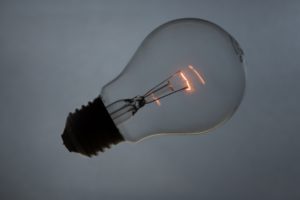Saving money is always a plus, especially while being comfortable in your own home. Be it winter or summer, the potential savings can be phenomenal. Back in August 2013, the government published Energy Saver 101 picturing a Home Energy Audit. This publication has 101 ways to be protected from high energy costs. 
What an energy audit is, and what it can do for you.
A home energy audit is an assessment of how well your home uses energy. For instance, small cracks in the siding or foundation, can bring as much air into your home, as if you had left a window open for 24 hours. Imagine leaving your window open overnight during subzero temperatures, how much harder is your furnace running? Or, leaving your window open all day while it is over 90 degrees and humid? That’s when your air conditioning unit will be choking! Take that extra pressure off your furnace and air conditioner by calling in a professional auditor.
Steps to take before signing a contract:
- Check with your utility companies. They may do the audit themselves or be able to recommend a local company.
- References. Get several references from the auditor company and contact them all. Ask each referenced customer if they were satisfied with the results.
- Call the BBB. The Better Business Bureau may have information on any complaints against the company.
- Ask questions of the energy auditor.
- Does the energy auditor use a calibrated blower door?
- How about thermographic inspections?
- If not, ask another auditor company.
Preparing for an audit.
- Before the energy auditor visits your house
- Make a list of any existing problems such as condensation and uncomfortable or drafty rooms.
- Have copies or a summary of the home’s yearly utility bills (electric and heating if other than electric; such as gas, fuel oil, and coal).
- The auditor then will analyze the residents’ behavior:
- How many people live here?
- Is your home occupied during the day?
- What is the average thermostat setting for summer? For winter?
- Do you use every room in the home?
What to expect during an audit.
- Room-by-Room. The energy auditor will do a room-by-room examination of the residence.
- Utility Bills. A thorough examination of your home’s bills for electric and heating. This will give the auditor an idea of what to look for during the audit.
- Tests which may be performed.
- a blower door test
- thermographic scan
- PFT air infiltration measurement technique, rarely offered
DIY Home Energy Audits. Can you do it yourself? Well, yes, there are some things you can do on your own, but for the more thorough audit, it’s best to call in the professionals.
What can you do on your own?
- Look for Air Leaks. Locate air leaks and seal them. You can learn more about how to find and fix these air leaks via our previous blog https://efficientheatcool.com/find-and-fix-drafts-in-your-home/
- Ventilation. Keep in mind your home needs good ventilation, as you insulate and seal leaks. The energy costs will come down, but improper ventilation can keep contaminants with known health effects such as formaldehyde and radon to be sealed into the house. As well as holding in moisture which promotes the growth of mold and mildew.
- Check your Insulation. It is important to use the correct type and thickness of insulation, as well as keeping proper ventilation and a vapor barrier. See this guide for insulation.
- Annual Inspection of HVAC system. If you have a forced-air furnace, also check your filters, replacing them as needed.
- Lighting. Consider changing your light bulbs over to energy-saving incandescent, compact fluorescent lamp (CFL), or light-emitting diode (LED).
- Appliances. Consider replacing appliances for those with an EnergyStar rating. This will considerably lower your energy costs.
- Finally. Once you have finished your DIY audit, consider calling in a professional to complete a more thorough assessment. Your self-assessment can help the auditor better analyze your home. Their audit may show you other potential areas for saving.
If you have any questions about an Energy Audit for your home, feel free to email us here, or give us a call at 216-663-6462. Thank you for your consideration! Without you, we wouldn’t be here!

